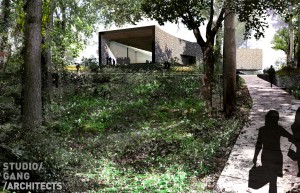Kalamazoo College hosts its inaugural Global Prize for Collaborative Social Justice Leadership awards weekend May 9 through 11 on the K campus. The Global Prize competition honors innovative and collaborative leadership projects in the pursuit of social justice and human rights and features a $25,000 Global Prize for a project that originates anywhere in the world and a $5,000 Regional Prize for a project that originates in Southwest Michigan.
A total of 188 social justice leadership teams submitted 8- to 10-minute video entries to the juried competition. Fifteen global and three regional entries were selected as finalists and will present their social justice strategies and vision in person during a social justice leadership weekend at K. All events are free and open to the public.
Presentations for the $25,000 Global Prize on Friday and Saturday will be live-streamed. View a complete schedule of prize weekend events, information on live-streaming, and links to finalist videos at www.kzoo.edu/socialjustice.
“Our 18 finalists offer cutting-edge social justice vision and practice,” said Jaime Grant, Executive Director of the Arcus Center for Social Justice Leadership. “They are working across boundaries of gender, race, age, sexuality, ability, socioeconomics, geography, politics, and more, leading us to new ways of thinking and working together.”
Kalamazoo College President Eileen Wilson-Oyelaran said the Global Prize competition and weekend events are a good match for the College’s educational mission and offer a unique opportunity for both the campus and Greater Kalamazoo communities. “K students, faculty, and community members are being exposed to leading social justice scholars and practitioners from across the world,” she said. “This further demonstrates how Kalamazoo College does more in four years, so our students can do more in a lifetime.”
Finalists for the $5,000 Regional Prize will present their entries Thursday, May 9, at 7:30 p.m., in the Kalamazoo College Field House, 1600 W. Michigan Ave. Finalists for the $25,000 Global Prize competition will present their entries Friday, May 10, at 2:45 p.m., in Dalton Theatre at the corner of Academy Street and Thompson Street on the K campus. Seven finalists will present their work Friday afternoon, and eight will present on Saturday, from 2:15 to 6 p.m.
A keynote panel will be delivered by the Global Prize competition’s panel of distinguished jurors on Saturday, May 11, at 11:30 a.m., in Dalton Theatre. Panelists include renowned social justice scholar and activist Angela Y. Davis (University of California-Santa Cruz), former Executive Director of the International Gay and Lesbian Human Rights Commission Cary Alan Johnson, and lifelong scholar/activist shea howell, whose work has focused on social justice education and grassroots empowerment in Detroit.
President Wilson-Oyelaran will award the $5,000 Regional Prize and the $25,000 Global Prize at 7:15 p.m., May 11 in Dalton Theatre.





